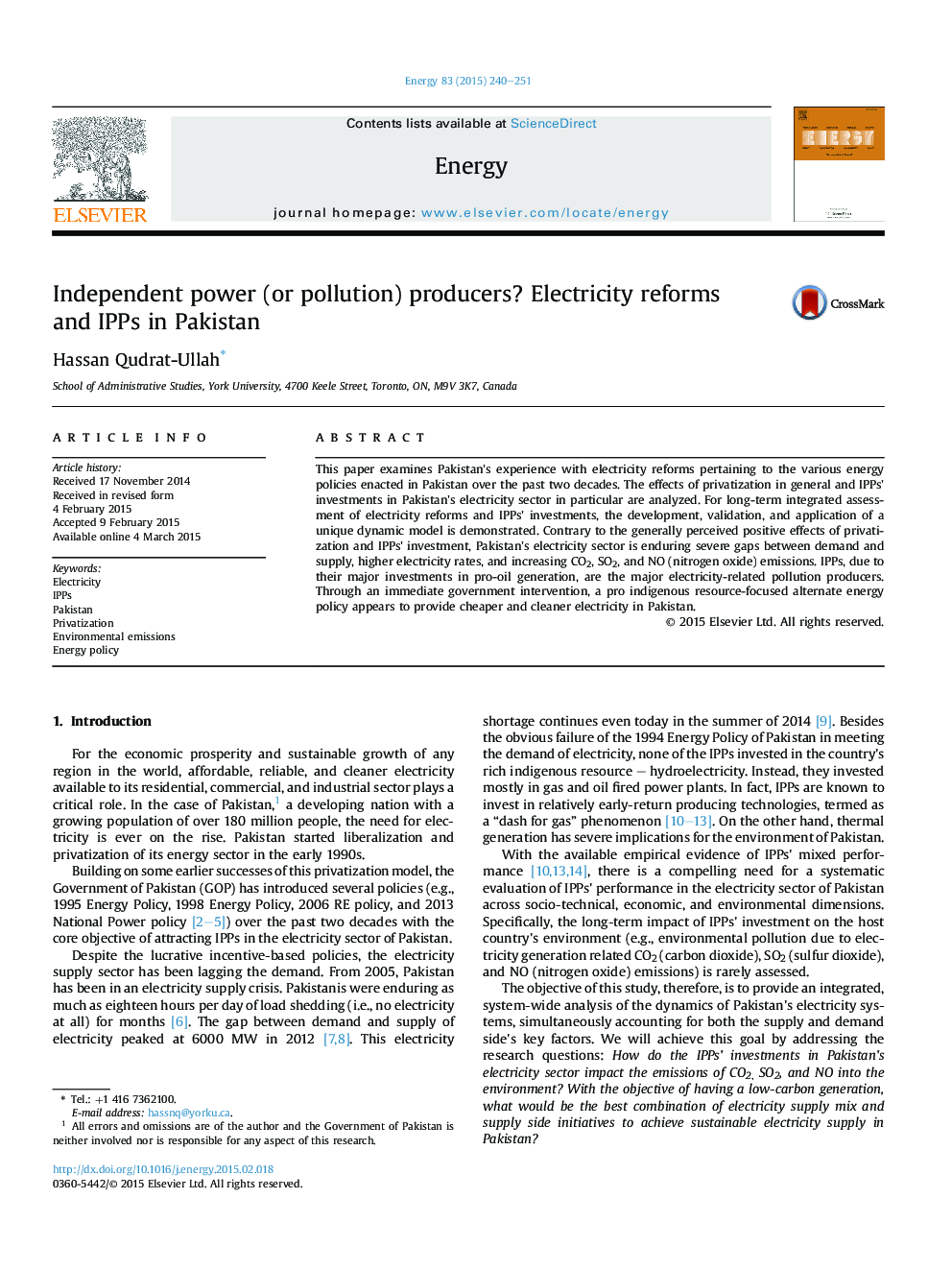| Article ID | Journal | Published Year | Pages | File Type |
|---|---|---|---|---|
| 8074790 | Energy | 2015 | 12 Pages |
Abstract
This paper examines Pakistan's experience with electricity reforms pertaining to the various energy policies enacted in Pakistan over the past two decades. The effects of privatization in general and IPPs' investments in Pakistan's electricity sector in particular are analyzed. For long-term integrated assessment of electricity reforms and IPPs' investments, the development, validation, and application of a unique dynamic model is demonstrated. Contrary to the generally perceived positive effects of privatization and IPPs' investment, Pakistan's electricity sector is enduring severe gaps between demand and supply, higher electricity rates, and increasing CO2, SO2, and NO (nitrogen oxide) emissions. IPPs, due to their major investments in pro-oil generation, are the major electricity-related pollution producers. Through an immediate government intervention, a pro indigenous resource-focused alternate energy policy appears to provide cheaper and cleaner electricity in Pakistan.
Related Topics
Physical Sciences and Engineering
Energy
Energy (General)
Authors
Hassan Qudrat-Ullah,
